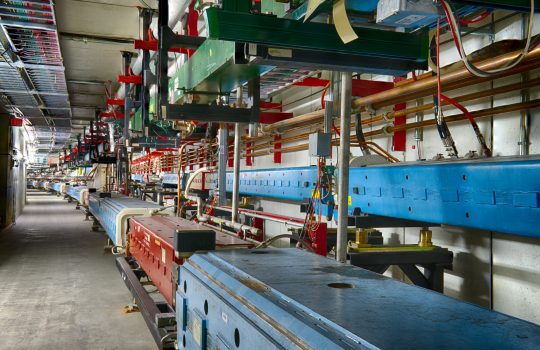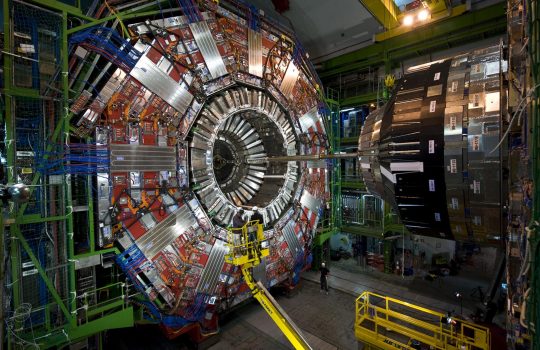Fermilab receives DOE funding to develop machine learning for particle accelerators
- accelerator
- accelerator complex
- accelerator operation
- Deep Underground Neutrino Experiment
- DUNE
- machine learning
- Main Control Room
- Main Injector
- Mu2e
- PIP-II
Fermilab scientists and engineers are developing a machine learning platform to help run Fermilab’s accelerator complex alongside a fast-response machine learning application for accelerating particle beams. The programs will work in tandem to boost efficiency and energy conservation in Fermilab accelerators.



